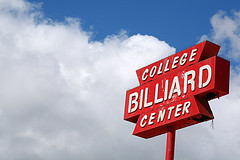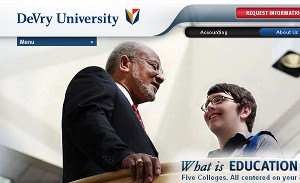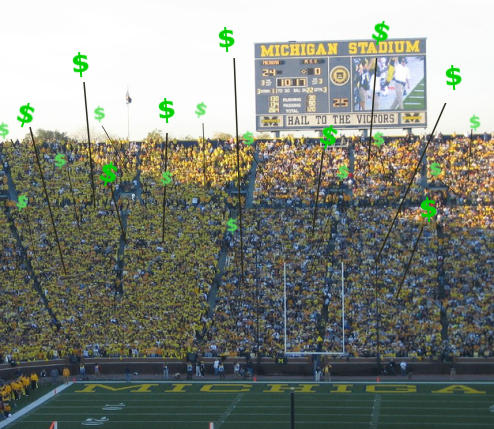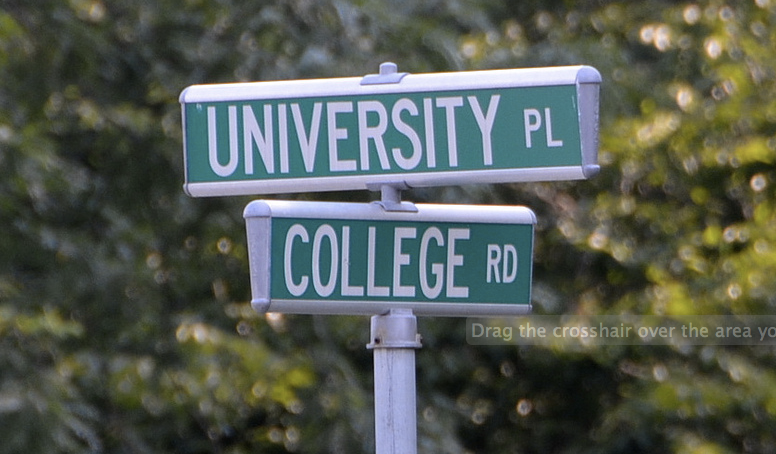Each year, millions of college students rack up student loans that won’t come due until they leave school. But even with financial aid, some students have trouble keeping up with the soaring costs of tuition, and once that debt ends up in the hands of a collection agency, the amount can mushroom out of control while the student is still in school. [More]
universities

Huge Collection Fees Making It More Difficult For Cash-Strapped Students To Afford College

Conflicts In Patient Privacy Laws Often Leave Student Health Records Vulnerable
When a college student seeks medical treatment at a campus healthcare facility, they probably expect they will be afforded the same discretion as all consumer are under HIPAA (the Health Insurance Portability and Accountability Act). But thanks to a separate, often conflicting federal law, that isn’t always the case. [More]

Discover Card Program Rewards Students Who Get Good Grades. Is That Legal?
Not so long ago, many college campuses regularly played host to credit card company shills, giving away T-shirts and pizzas to students in exchange for filling out account applications. Then the Credit Card Accountability Responsibility and Disclosure (CARD) Act of 2009 put an end to most of these practices, leading card issuers to devise new ways to market directly to the under-21 crowd. [More]

5 Reasons Why Every Single College Ranking Is a Pile of Crap
It’s almost back-to-school time, which means now is the season to be inundated once again with the annual lists ranking colleges and universities. But in this guest post from Zac Bissonnette, author of the upcoming Debt-Free U: How I Paid for an Outstanding Education Without Loans, Scholarships, or Mooching off My Parents, he explains why these lists are all a complete crock. [More]

Washington Wants Better Oversight Of For-Profit Colleges
Enrollment in for-profit colleges like the University of Phoenix, DeVry University, and Kaplan University–Gawker calls them fake colleges–tripled in the past decade, and has become such a fast-growing segment of the education market that some members of Congress think it needs better oversight. [More]

What Are The Most Expensive Colleges In America?
College is expensive, but the some colleges are more expensive than others. Collegegrotto.com rounded up the top 100 most expensive colleges in the United States, based on just tuition and room and board. The winner? Sarah Lawrence College, north of New York City.

../..//2009/05/05/now-your-money-can-be/
Now your money can be at work in a different way, helping predict outbreaks as you spend it. Researchers at Northwestern University are testing a new computer modeling program that tracks the flow of dollar bills across the US as a way to predict the spread of swine flu. [New York Times]

Abel's Copies Won't Issue A Refund Even After Selling You The Wrong Product
Abel’s Copies is standing by their strict “No Refunds” policy even after ordering the wrong course packet for reader David. The workers at the off-campus bookstore near the University of Texas at Austin insisted there was only one instructor for David’s course and that they couldn’t order a new course packet unless David paid in advance. When David got home, he realized that Abel’s sold him the wrong packet. He called the store and learned that Abel’s had the right packet in stock for $25 less than he paid—but Abel’s refused to issue a refund…

How Universities And Credit Card Companies Make Money Off Of Students
How can an educational institute act in its students’ best interest if it stands to make money off of increasing their debt load? The symbiotic relationship between universities and credit card companies is being questioned more than ever by student groups and politicians, writes the New York Times.

Bad Voodoo: Transforming Student IDs Into Debit Cards
Cash-strapped colleges are partnering with banks to transform student IDs into debit cards. The deals are a windfall for the institutions, but force students to open accounts laden with hefty penalty fees and surcharges.

Adobe Won't Fix DRM Screw-Up Rendering E-Books Unreadable
If you use Leopard on a Mac and plan on buying e-books, be very careful—according to the various complaints on this thread, Adobe’s Digital Editions still doesn’t work on Leopard, and yet most places selling Digital Editions e-books won’t warn you of this, leaving you with activated books you can’t return but also can’t read.

Ohio Study Provides Snapshot Of State Of High School Finance Education
Now that Ohio has made personal finance basics a mandatory requirement to graduate from high school, people are starting to look at the problem of who teaches it and what it consists of (just look at the comment threads in the two related posts below to see the wide spectrum of opinions and personal experience anecdotes). A new Ohio State University study has found that the current level of teaching is all over the place—and the people teaching it have widely varying levels of knowledge about the subject matter.

Colleges Charging Different Tuition Rates Based on Your Major
Some state colleges and universities have started charging different undergraduate tuition rates depending on what the student decides to major in. Business majors at the University of Wisconsin pay $500 more each semester than do their liberal arts peers. Graduate schools have been doing this for years: Law school and med school tuition tends to be more per term than, say, an advanced degree in comparative literature. But is it fair?


